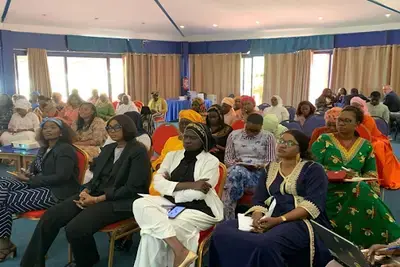Success Story
Benin: A Beacon of Hope for African Democracy
On March 20, voters and the media in Benin held their breath as they awaited the outcome of the second round of its presidential elections. Prime Minister Lionel Zinsou was up against businessmen Patrice Talon, after receiving 27 and 23 percent of the votes, respectively, in the first round on March 5. Even before Benin’s National Autonomous Electoral Commission (CENA) announced the preliminary results the morning of March 21, Zinsou had called Talon to concede the election.
Appointed prime minister in June 2015 by the outgoing president Thomas Boni Yayi, Lionel Zinsou ran on a platform of “Continuity” that the Beninese people rejected. In stark contrast, Patrice Talon campaigned on “Change” and vowed to step down after one five-year term. His fellow citizens responded by electing him with an overwhelming 65.39 percent.
In a recent interview on Voice of America’s Straight Talk Africa, Dr. Christopher Fomunyoh, NDI Senior Associate and Regional Director of Central and West Africa, discussed the peaceful transition of power in Benin as a beacon of hope for strength and democracy throughout Africa.
Beninese civil society has held its leaders accountable and the people of Benin have taken ownership of their democracy. As a result they have ensured smooth transitions between very diverse leaders. Dr. Fomunyoh says we are “getting close to the dawn for democratic governance” in Africa.
Term limits have been a very effective way to promote healthy democracy. In West Africa, out of 15 countries, only two heads of state have held power for more than 10 years. This renewal of political leadership, coupled with the political participation of people from different backgrounds, has allowed West Africans to share their experiences in countries going through more difficult transitions.
Dr. Fomunyoh says that, ultimately, autocrats are “swimming against the of history” because the younger generation of Africans wants to be governed differently. People are already beginning to rise up and ask for the political space where they can contribute to the development of their own countries.



